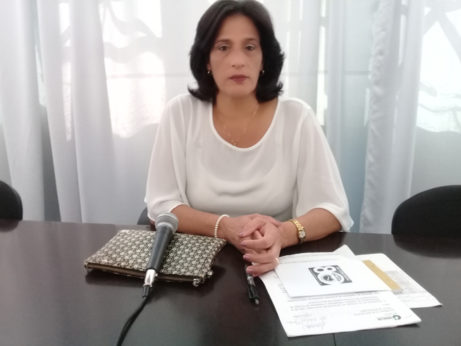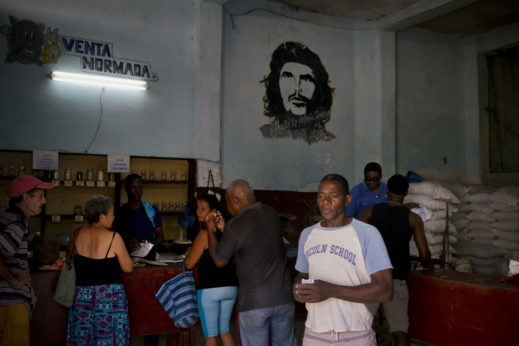
HAVANA (AP)—The Cuban government announced Friday that it is launching widespread rationing of chicken, eggs, rice, beans, soap, and other basic products in the face of a grave economic crisis.

Commerce Minister Betsy Díaz Velázquez told the Cuban News Agency that various forms of rationing would be employed in order to deal with shortages of staple foods. She blamed the hardening of the U.S. trade blockade by the Trump administration. Economists give as much or even more blame to a plunge in aid from Venezuela, where troubles at the state-run oil company PDVSA have led to a nearly two-thirds cut in shipments of subsidized fuel that Cuba used for power.
Cuba imports roughly two thirds of its food at an annual cost of more than $2 billion USD and brief shortages of individual products have been common for years. In recent months, a growing number of products have started to go missing for days or weeks at a time, and long lines have sprung up within minutes of the appearance of scarce products like chicken or flour. Many shoppers find themselves still standing in line when the products run out, a problem the government has been blaming on “hoarders.”
“The country’s going through a tough moment. This is the right response. Without this, there’ll be hoarders. I just got out of work and I was able to buy hot dogs,” said Lazara García, a 56-year-old tobacco-factory worker.
At the Havana shopping center where García bought her hot dogs, cashiers received orders Friday morning to limit powdered milk to four packets per person, sausages to four packs per person, and peas to five packets per person.
Limited rationing of certain products has already begun in many parts of the country, with stores limiting the number of items like bottles of cooking oil that a single shopper can purchase. The policy announced by Díaz appears to go further and apply the same standards across the country of 11 million people.
The Cuban economy crashed with the fall of the Soviet Union and plunged the island into what is referred to as the “Special Period”—a decade of intense economic crisis. The Special Period ended with the arrival of subsidized Venezuelan oil in the early 2000s.
The latest shortages and rationing brought on by the tightened U.S. blockade appear to mark the end of a phase of relative prosperity, but conditions are nowhere close to the deprivation of the Special Period. Cuba’s leaders say that while tough times lie ahead, there will be no return to the worst days of the post-Soviet depression because the island has diversified its economy and built trade ties with countries around the world.

Food stores in Cuba are government-run and sell products ranging from highly subsidized to wildly overpriced by global standards. Every Cuban receives a ration book that allows them to buy small quantities of basic goods like rice, beans, eggs and sugar each month for payment equivalent to a few U.S. cents.
Cubans with enough money can buy more of those basic goods at “liberated” prices that are still generally below the world average. At the highest of Cuba’s three tiers, brand-name goods from high-quality rice to jams can be purchased for often two to three times the price in their country of origin.
Díaz said chicken will now be sold in limited quantities in every type of store—with cheaper chicken limited to 11 pounds per purchase and the more expensive variety capped at two packages per purchase. Low-priced soap, rice, bean, peas, and eggs will now only be sold in limited quantities per person and controlled through the national system of ration books, she said. Sales of those products at higher prices do not appear to be affected for the moment.
Díaz provided a grim series of statistics on food production by the state-run agricultural sector, which has found itself struggling to find the cash it needs to pay for basic inputs.
She said that in March Cuba produced 900,000 fewer eggs than the 5.7 million needed daily to satisfy national demand. That deficit shrank, however, to 600,000 by mid-April, she said. The production of pork, the most-consumed meat in Cuba and a normally affordable staple of most people’s diets, is hundreds of tons below target.
Díaz said importing food from U.S. producers had become more difficult under Trump, forcing Cuba to search for products on the world market that are more expensive and difficult to import.
“Selling limited quantities will lead to equal distribution, so that the greatest number of people can buy the product, and we can avoid hoarding,” she said.

MOST POPULAR TODAY

High Court essentially bans demonstrations, freedom of assembly in Deep South

Zionist organizations leading campaign to stop ceasefire resolutions in D.C. area

U.S. imperialism’s ‘ironclad’ support for Israel increases fascist danger at home


UN warns that Israel is still blocking humanitarian aid to Gaza







Comments